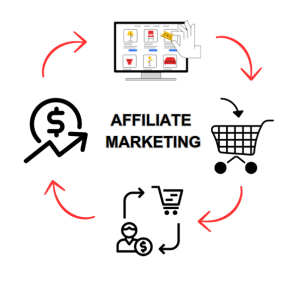Honey App – Biggest Youtube Scam?
NOTE: TOMORROW WE ARE HAVING AN “AFFILIATE MARKETING EXPOSED” LIVESTREAM – DETAILS HERE
TIRED OF GETTING LEFT BEHIND AND NOT MAKING MONEY WITH AI – CLICK HERE
Exposing the Truth About the Honey App: What You Need to Know About Affiliate Marketing and Online Money-Making
Four years ago, I made a video exposing the Honey app and its impact on the affiliate marketing industry. Recently, this topic has resurfaced, with multiple videos going viral, claiming to uncover what the app does behind the scenes. While some of the claims made in these viral videos are valid, many miss the mark or lack key context.
As someone with 25 years of experience in affiliate marketing and a long-time influencer (before it was even trendy), I want to break down how tools like the Honey app, coupon websites, and affiliate marketing really work. This post will cover everything you need to know about the Honey app controversy, affiliate marketing tactics, and what you should watch out for as a consumer or creator.
What is the Honey App, and How Does it Work?

At its core, the Honey App is a browser extension designed to help users find and apply coupon codes while shopping online. The app operates through affiliate marketing, where commissions are earned when users make purchases through specific links. Essentially, it functions by:
- Dropping cookies on your computer when you click on its affiliate links.
- Earning commissions from retailers if a purchase is made.
- Offering cashback to users as part of its incentive system.
What’s intriguing is how the Honey App has managed to generate substantial revenue over $55 million annually while claiming to be a tool that benefits consumers. But let’s dig deeper.
Affiliate Marketing 101: How It Works

To understand the controversy surrounding the Honey app, we first need to grasp the basics of affiliate marketing:
- Affiliate Links: These are unique links assigned to an affiliate to track referrals. When someone clicks the link, a cookie is placed on their browser. If the user makes a purchase, the affiliate earns a commission.
- Last-Click Attribution: Typically, the last affiliate link clicked gets credit for the sale. However, there are exceptions, such as programs that pay commissions based on leads or recurring lifetime earnings.
The Honey App’s Practices: Shady or Smart?
When I first encountered the Honey app in 2017 or 2018, it was marketed as a tool to find coupon codes and save users money. However, its methods raise several red flags:
- Cookie-Based Tracking: When you use Honey, it places a cookie on your browser, overriding other affiliates’ links—even if Honey didn’t provide a valid coupon.
- Businesses Paying for “Crappier” Coupons: Honey allegedly prioritized deals that paid them more, which often weren’t the best available coupons for users.
- Lack of Transparency: Honey didn’t disclose that it was making money as an affiliate, which violates standard ethical practices in the affiliate marketing industry.

Lessons for Influencers and Marketers
If you’re an influencer or aspiring marketer, the Honey App controversy highlights some critical lessons:
- Due Diligence is Key: Always research the products and tools you promote. Accepting payments without understanding the implications can harm your reputation.
- Transparency Builds Trust: Disclose affiliate relationships upfront. Your audience will appreciate honesty.
- Focus on Ethics: Promote products that genuinely benefit your audience. Shady tactics might bring short term gains but can damage your credibility in the long run.
Bigger Issues in the Affiliate Industry
The Honey app controversy highlights broader problems in the affiliate marketing industry:
- Coupon Sites and Traffic Hijacking: Coupon sites often “steal” commissions by overriding existing cookies. This has been happening for years and isn’t exclusive to Honey.
- Shady Tactics in Reviews: Many affiliates write fake reviews or use clickbait titles like “Is Product X a Scam?” to hijack traffic and redirect it to their own affiliate links.
Is the Honey App a Scam?

Calling the Honey App the “biggest scam ever” might be an exaggeration, but it does raise ethical concerns:
- It’s not technically a scam, as it provides a functioning service (finding coupon codes).
- However, its lack of transparency and questionable affiliate practices are problematic.
If you’ve used the Honey App without knowing how it earns money, you’re not alone. Many users are unaware that their purchases contribute to the app’s revenue through affiliate marketing.
What the Viral Videos Got Wrong
Some of the claims in the viral videos about Honey are exaggerated:
- “Biggest Scam in YouTube History”: While Honey’s practices are shady, they are far from being the biggest scam. The affiliate marketing industry is worth billions, and Honey’s $55 million in yearly revenue is a drop in the bucket.
- “No One Talked About This Before”: This isn’t a new revelation. I made a video about Honey’s practices four years ago, and affiliate marketers have been aware of these tactics for years.
Lessons for Influencers and Consumers
- For Influencers:
- Always vet the products you promote.
- Disclose paid partnerships and affiliate relationships clearly.
- Understand how affiliate marketing works to avoid endorsing unethical products.
- For Consumers:
- Be skeptical of tools claiming to “save you money” without revealing how they make money.
- Learn about affiliate marketing to understand how your clicks generate revenue for companies.
The Bigger Picture: Affiliate Marketing and You

The Honey App is just one example of how affiliate marketing powers much of the internet. From coupon sites to product reviews, this $14 billion industry operates on a simple premise: helping consumers find products while earning commissions.
As a marketer or content creator, you can learn valuable lessons:
- Create Honest Reviews: Avoid sensationalized claims like “scam” unless they are substantiated.
- Disclose Relationships: Transparency fosters trust with your audience.
- Use AI and Tools: AI tools can help you research products, track trends, and craft better content.
How to Navigate Affiliate Marketing Safely
For consumers, navigating the affiliate marketing landscape can feel overwhelming. Here are some tips to stay informed:
- Read the Fine Print: Check if apps or tools disclose how they make money.
- Verify Claims: Look for unbiased reviews before downloading extensions like Honey.
- Educate Yourself: Understanding affiliate marketing can help you make better decisions online.
While the Honey app isn’t the “biggest scam” out there, its practices raise valid concerns about transparency and ethics in affiliate marketing. As consumers and creators, we must demand better disclosure and hold companies accountable for shady tactics.
If you want to dive deeper into the affiliate marketing industry, how online money-making works, or how to create ethical and successful online businesses, check out my other resources and videos.
My Original 4 Year Old Honey Scam Video





6 Responses to Honey App – Biggest Youtube Scam?